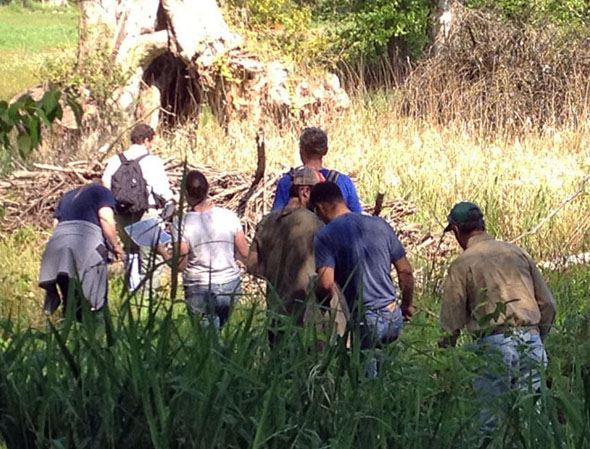
This training provides information and methods for determining the ordinary high water mark (OHWM) as defined in the state Shoreline Management Act (SMA). Waters regulated under the SMA include all tidal waters, streams greater than 20 cubic feet per second mean annual flow, water bodies greater than 20 acres in size and any associated wetlands and deltas. Field visits to each of the SMA water types will give you the opportunity to apply the methods discussed in the classroom.
In this training, you will learn answers to these questions:
- How is the OHWM defined and where does it apply?
- What is the regulatory context and history of the OHWM?
- Why it is important to use field indicators to determine the OHWM?
- What are the most reliable field indicators on streams, lakes and associated wetlands?
- What are some common misconceptions about OHWM determinations?
(12 AICP CM Credits / CEP Points)
Lunch is provided.
Instructors: Diane Hennessey has specialized in the ecology, protection, and restoration of aquatic systems for 17 years. She has worked as an aquatic resource scientist in private consulting and currently works as a Wetland Specialist for Washington State Department of Ecology. Her work has included stream, wetland, and wildlife habitat studies including delineation of both wetland and stream ordinary high water mark boundaries; preparing, reviewing, and issuing environmental permits; planning, design, and preparing aquatic restoration plans; monitoring mitigation and restoration projects; providing technical assistance in aquatic resource protection and conservation to local governments; and compliance monitoring of permits and violations. She has also been an instructor for the University of Washington-Seattle Wetland Science and Management Certificate Program since 2005 and has taught Wetlands Science and Ecological Processes; and Wetlands Identification and Delineation.
Andrea Jedel is certified as a Professional Wetland Scientist and has been working in natural resource management since 2000. She is a Wetlands/Shorelands/Federal permit specialist for Ecology’s Central Regional Office. Andrea is responsible for wetland, shoreline, and Section 401 (Federal Clean Water Act) permitting in Chelan, Douglas, and Okanogan counties and the cities contained within. Her duties include technical assistance, reviewing and conditioning permits, OHWM review and determination, compliance monitoring, and enforcement when necessary on matters pertaining to wetlands, shorelines, and Section 401 permits. Andrea also conducts review and comments on local SEPA decisions, and reviews and comments on local critical area ordinance and shoreline master program plans updates.
Lynn Schmidt is the Department of Ecology’s Statewide Flood Engineer, focusing on reducing flood risks to communities while enhancing natural floodplain functions. Her career has spanned a wide range of topics within the environmental and hydraulics engineering fields, including hydraulic modeling, river restoration, floodplain management, stormwater management, environmental investigations, and monitoring. Lynn holds a BS in Civil Engineering, MS in Environmental Engineering, and is a Professional Engineer and Certified Floodplain Manager.
